Attention all California Airbnb owners: California SB 584 is on the horizon, and it will drastically affect the short term rental landscape.
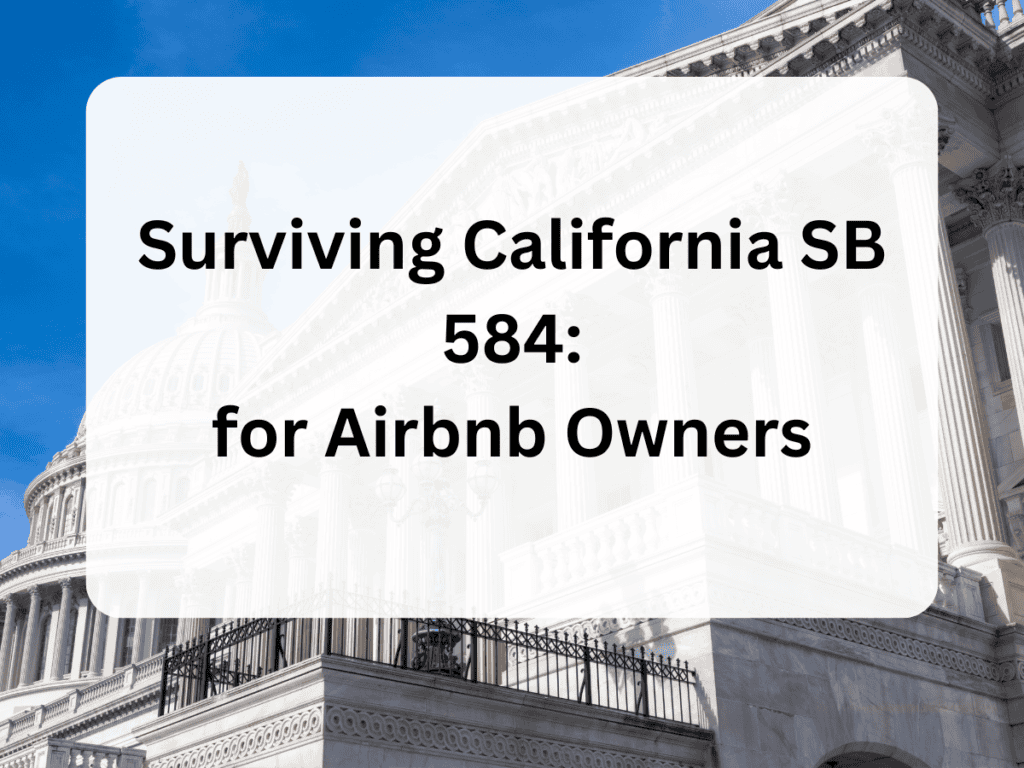
Introduction:
Alright, get ready, Airbnb hosts! California Senate Bill 584, also known as the “Short Term Rental” tax bill or the Laborforce Housing Financing Act of 2023, is on its way to shake things up in the short term rental world. This bill, aimed at fixing California’s housing crisis, comes with a fancy new tax and a whole lot of headaches for us vacation rental home owners.
Implications for Airbnb Owners:
Now, here’s the bad news. SB 584 is bringing in a 15% tax on occupancy for short-term rentals. Yep, you heard that right.
As short term rental owners, we need to prepare for the implementation of SB 584. It’s crucial to consider strategies for adapting to these changes.
Which California Airbnb’s Are Most Vulnerable:
Let’s break it down.
If your Airbnb is located in areas with high hotel and bed and breakfast availability you may feel the impact more, as you will face increased competition from traditional accommodations. Note that traditional accommodations are not subject to the 15% tax on occupancy.
Also, if you own an Airbnb that caters to shorter stays or solo travelers, who may be more price-sensitive, you could potentially see a greater impact as well.
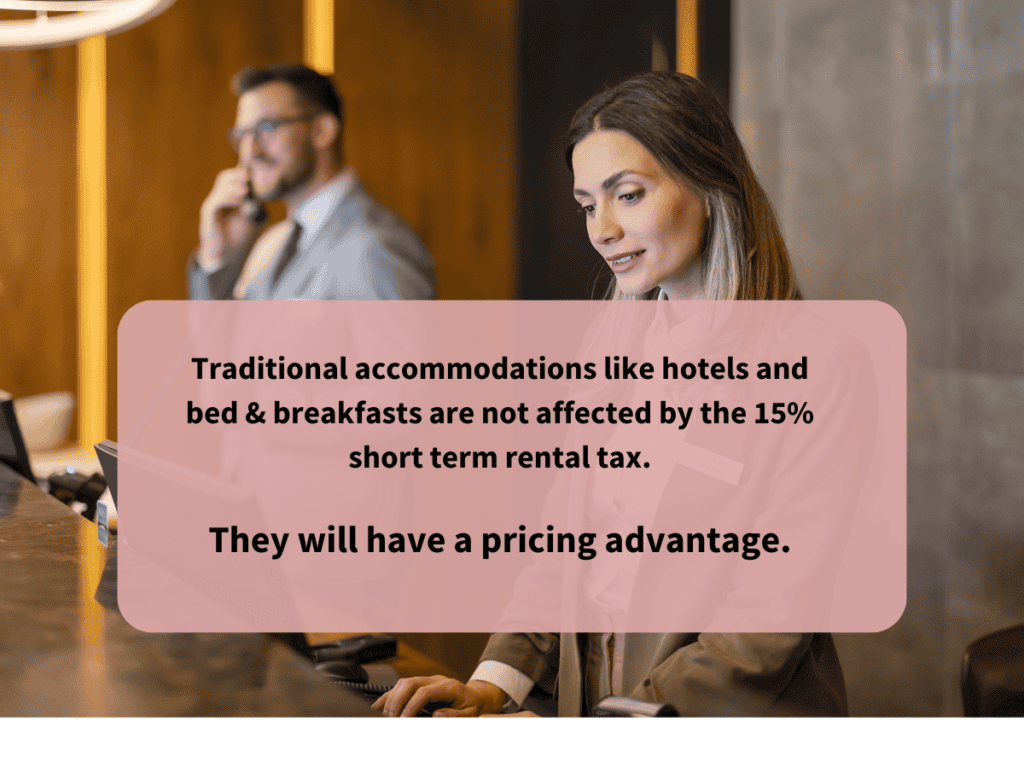
Which Airbnb’s Will Feel The Tax Sting Less:
Again, hotels and bed and breakfasts will now have the pricing edge over Airbnb’s because they won’t be slapped with this 15% tax on occupancy. However, if your Airbnb is in an area where hotel and B&B options are scarce, guests won’t have much of a choice but to book your space.
Moreover, if your Airbnb can accommodate large groups and offers a more wallet-friendly alternative to pricey hotel rooms, guests will still be choosing your Airbnb.
Strategies for Adapting Your Airbnb Business to California SB 584
1. Pivot to Long-Term Tenants:
The most obvious way to avoid the occupancy tax altogether would be to transition your Airbnb into a long-term rental. Focusing on stays longer than the 30 day threshold for short-term rentals can provide more stable income.
2. Target Niche Markets:
Identify niche guests that align with your Airbnb’s offerings and tailor your marketing efforts to attract these guests. This can help you stand out in a competitive market.
3. Focus on Unique Selling Points:
Emphasize what sets your Airbnb apart from others, such as its location, amenities, or unique features, to attract guests willing to pay a premium. Make use of social platforms like Instagram to showcase these unique selling points and engage with potential guests. Visual content can be a powerful tool in highlighting the unique aspects of your property and attracting guests who value those features.
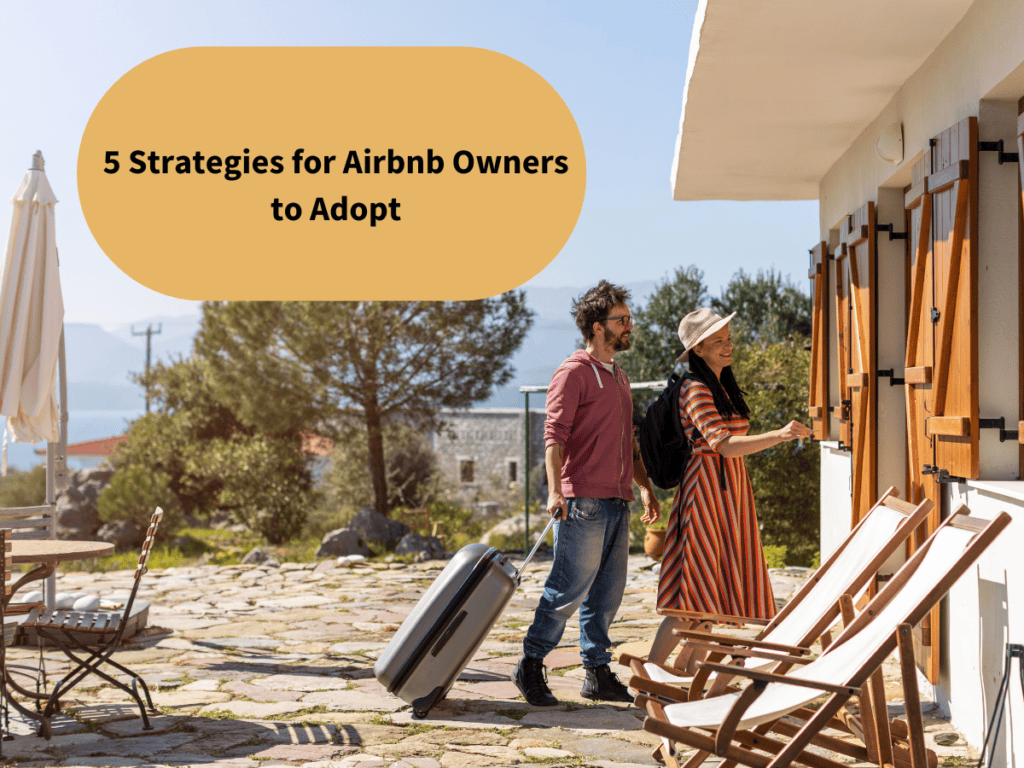
4. Adjusting pricing (last resort):
Adjusting pricing should be considered a last resort for several reasons.
Firstly, lowering prices too quickly or drastically can devalue your property and undercut your profitability in the long run. It can also create an expectation among guests that your property will always be available at a discounted rate, making it difficult to raise prices again in the future.
More importantly, it’s crucial to avoid setting prices too low. Pricing your Airbnb too low can attract the wrong kind of guests. This can lead to damage to your property, additional cleaning costs, and even potential legal issues. From my experience, the short-term gains from lower pricing isn’t worth the long-term costs associated with hosting problematic guests.
Pricing adjustments should be made carefully and thoughtfully. Take into account the value of your property and the overall market conditions. It’s important to strike a balance between competitiveness and profitability. You need to ensure that your business remains sustainable.
5. Sell Your Airbnb (last resort):
Have you owned your Airbnb for awhile? Selling could be a strategic move to cash in on equity, especially with the hot real estate market in California. We all know that property values in California have soared over these past years, driven by high demand and limited inventory. If you sell your Airbnb now (especially before California SB 584 is enacted), you could potentially capitalize on this trend and secure a significant return on their investment. With that said, selling is a big decision that should be carefully considered, taking into account factors such as market conditions, tax implications, and your long-term financial goals.
Conclusion:
As California’s SB 584 approaches, Airbnb hosts need to prepare for changes. The 15% tax on occupancy is a big challenge, especially in areas with many hotels and bed and breakfasts. These hosts will face more pricing competition from traditional accommodations. But there are ways to adapt, like renting to long-term tenants, focusing on specific guest groups, and highlighting what makes your Airbnb special. It’s important not to lower prices too much, as this can attract the wrong kind of guests and lead to extra costs. Despite the challenges, SB 584 also offers opportunities for vacation rental hosts to innovate and succeed in the changing short-term rental market.
This post was about California SB 584, the “Short Term Rental” tax bill, for Airbnb owners.


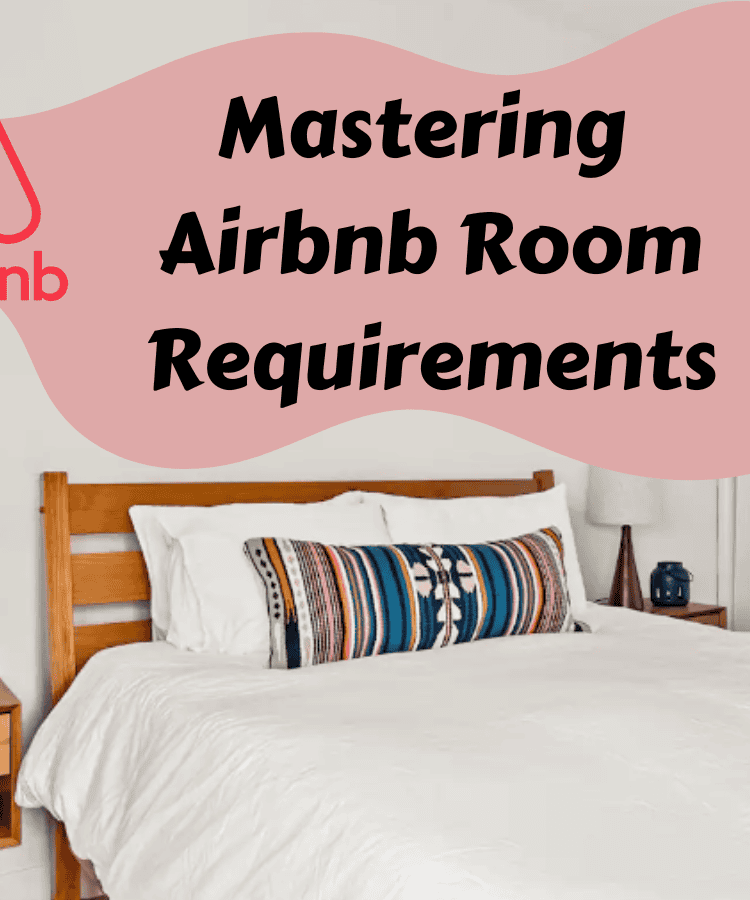
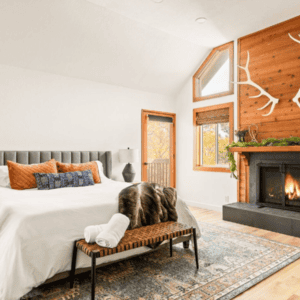

Leave a Reply